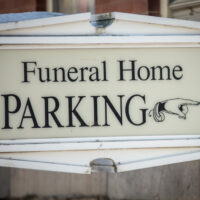Tortious Interference With A Dead Body Claims In Florida

Losing a loved one is very often a highly traumatic time in the average person’s life, and the stress can be made worse by having to deal with funeral services and issues surrounding burial or cremation. If you are unfortunate enough to experience problems in dealing with your loved one’s remains, it can make things even worse. While cases are rare, enough problems involving corpses have occurred in Florida to lead to the creation of a cause of action for tortious interference with a dead body. If your loved one’s remains have been mishandled, you may have a cause of action against the funeral home for your pain and suffering.
What Is “Tortious Interference?”
The civil law equivalent of a crime is called a tort, and unlike in the criminal justice system, torts are not usually punishable with jail time – rather, the consequences for being convicted of a tort usually are monetary, so that the plaintiff can be ‘made whole.’ “Tortious interference” simply means interfering in a situation or with an item in such a way that you could be accused of committing a tort because of it. So, if a funeral home is sued for tortious interference with a dead body, it means that you are accusing them of mishandling remains in such a way as to cause serious emotional (and possibly physical, in some cases) distress.
There is no hard and fast rule defining “tortious interference,” at least not when it comes to human remains, but there are some guidelines. Most of the time, claims under this cause of action will be based on negligent or intentional infliction of emotional distress – that is, arguing that the tortious interference with your loved one’s dead body caused you significant emotional distress. Normally under Florida law, there must be some kind of physical injury that triggers that distress (called the “impact rule”) – but the courts have carved out numerous exceptions, and cases involving human remains usually fall into one of them.
Imputed Recklessness Or Malice
The ‘impact rule’ generally holds that without any kind of physical injury, one cannot make claims for ‘willful, wanton, or malicious’ causing of emotional distress by the funeral home. However, the courts have specifically stated that if there is an “entire want of care” or attention to duty shown by the defendant, malice and/or negligence may reasonably be implied. The rationale is that in these types of cases, extreme emotional distress is often the only type of injury that a bereaved family member might suffer, and a suffering person should never be in a position where they have no right to recourse.
It may seem farfetched, but there are far too many examples of these cases to deem them unlikely, and any kind of behavior that shocks the conscience of the average person can lead to liability on that actor’s part. For example, a Florida case from 1984 detailed a funeral home preparing and dressing the wrong body for burial, trying to convince the mourners that it was the correct corpse, and upon discovery, choosing to simply throw the correct corpse in a casket, without any kind of preparation whatsoever. Cases like this clearly show an “entire want of care” for the deceased and for the families of the deceased, and Florida law now has a way to hold these actors accountable.
Call A Tampa Funeral Procedures Attorney
When you have lost a family member or loved one, you deserve time to heal and say goodbye that should not be interrupted by legal wrangling or funeral home misconduct. If you have questions or concerns about your loved one’s funeral, you need to contact a Tampa wrongful burial & cremation attorney as soon as possible, so that you can be sure to have everything under control. The Rinaldo Law Group is happy to provide compassionate and dedicated representation. Contact us today for a free consultation.
Resource:
floridabar.org/the-florida-bar-journal/so-i-finally-understand-the-impact-rule-but-why-does-it-still-exist/
https://www.tampainjuryaccidentlaw.com/spotting-florida-funeral-home-negligence/
